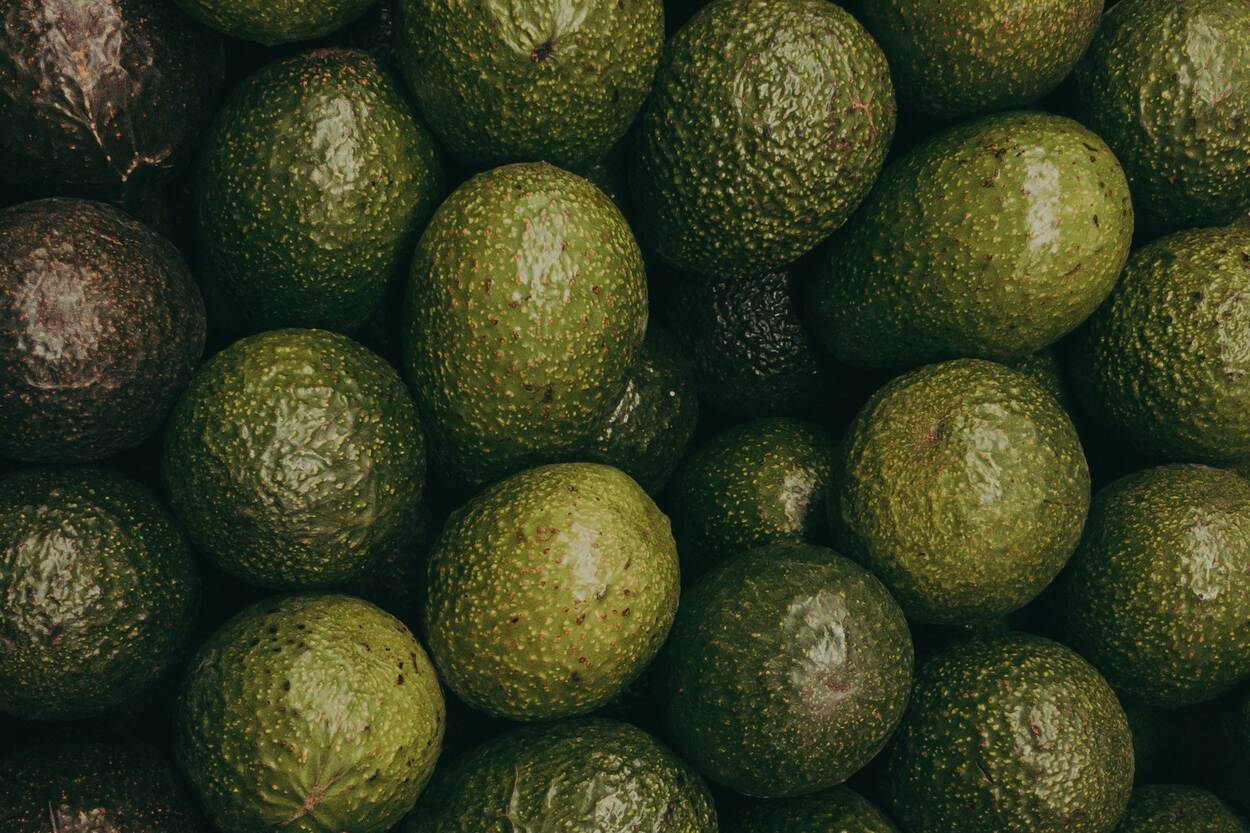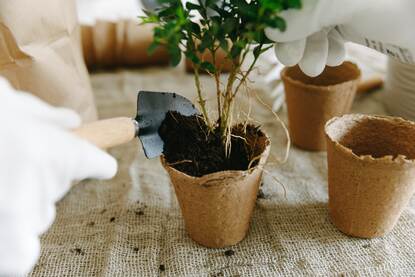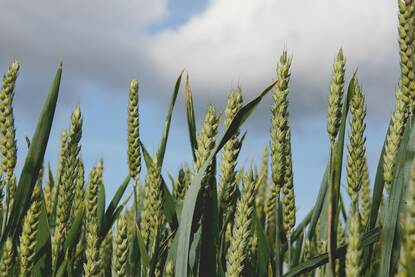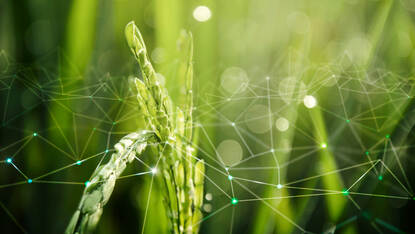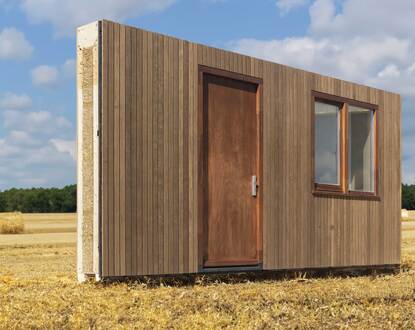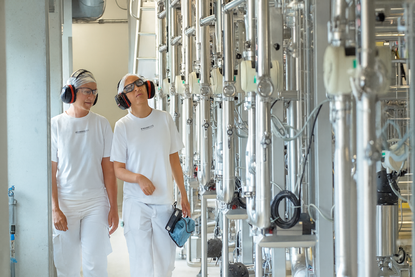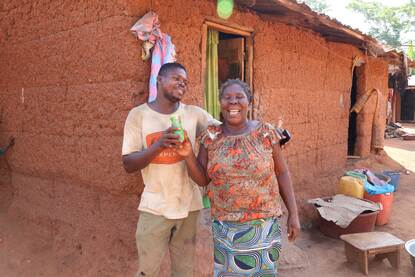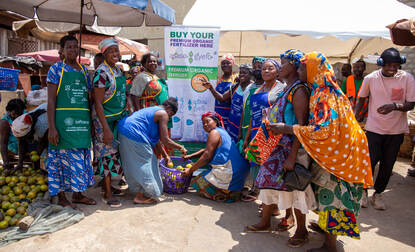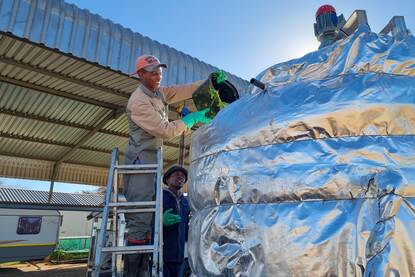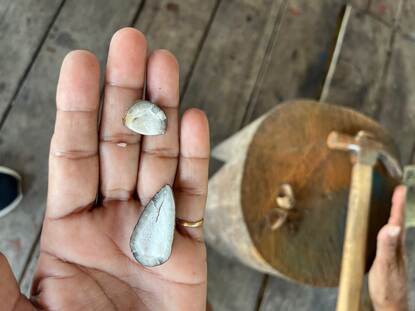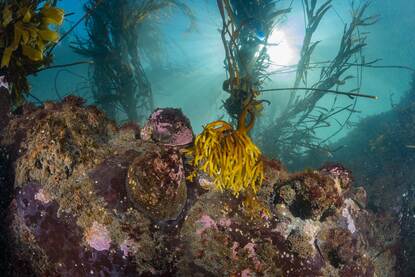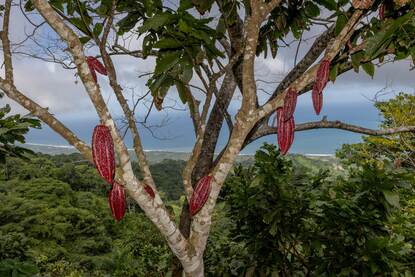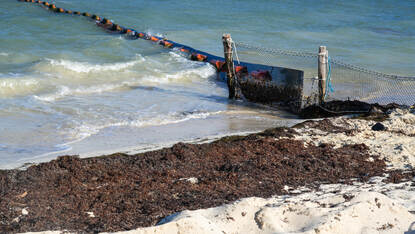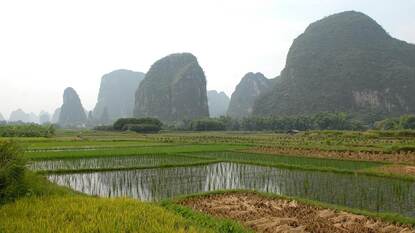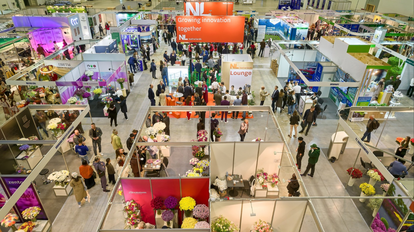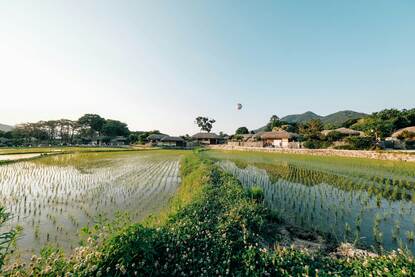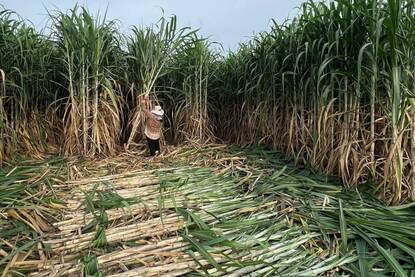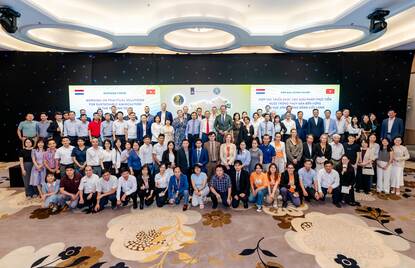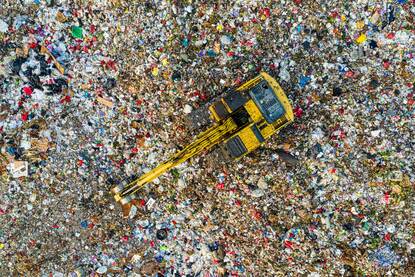Foto Source: Alejandro Duarte on Unsplash
Agricultural byproducts are often seen as waste, yet they hold great potential. In Ethiopia, the growing avocado and coffee industries generate large amounts of unused residues while soils remain nutrient poor. The Netherlands Agricultural Network (LAN) team at the Dutch Embassy in Addis Ababa connects Dutch innovators with Ethiopian partners to turn these byproducts into oils, feed, and biochar. Their efforts show how agricultural waste can become a driver of new products, farmer resilience, and a circular bioeconomy.
Ethiopia’s agro-processing sector produces large amounts of waste every year. Unfortunately, much of it is underutilized. The processing of fruits, vegetables, and other crops generates pulp, peels, seeds, and husks. These byproducts often end up in landfills or open dumping sites. As they decompose, they emit greenhouse gases. This contributes to climate change and creates local environmental and sanitation challenges.
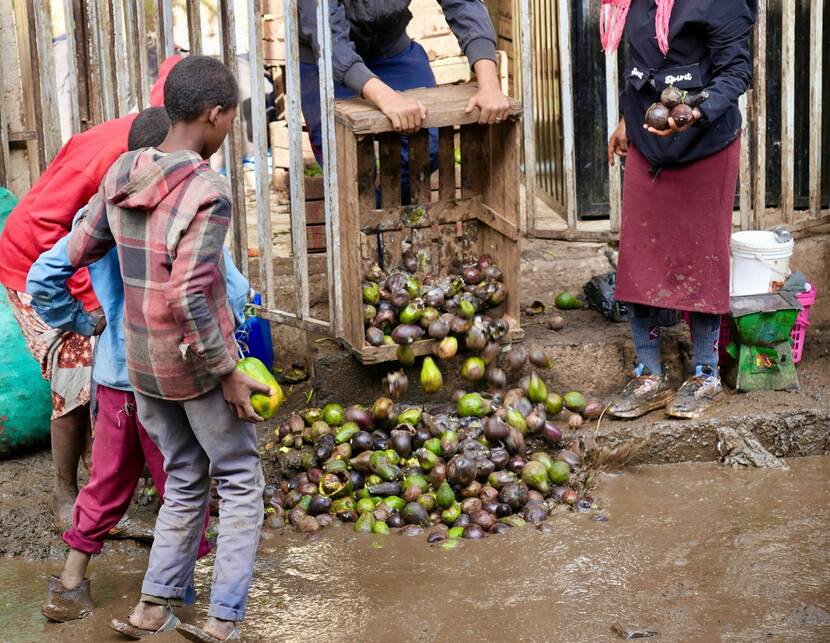
At the Yirgalem Industrial Park – in the Sidama region, around 40 kilometers south of the region’s capital Hawassa – avocado oil production generates around 200 tons of pits and pulp each season. Coffee washing stations across the country also produce large volumes of coffee pulp during harvest. These pits and pulps can be used as soil fertilizers. Yet, many farmers producing avocado and coffee apply little to no fertilizer. As a result, soils remain nutrient-poor and vulnerable to degradation. To avoid further environmental deterioration, there is a need to turn these byproducts into valuable resources for agriculture and industry.
Unlocking hidden value in avocado and coffee residues
Coffee makes up 10% of Ethiopia’s agricultural output; around 4-5% of its gross domestic product (GDP). Avocado is likely well under 1%. Agricultural residues like avocado pits, coffee cherries (the fleshy fruits surrounding coffee beans), and other crop waste hold untapped value.
Avocado pits can be pressed to extract oils for cosmetics. Proteins from avocado pulp can be used in animal feed. Coffee cherries also contain oil suitable for soaps and skincare. After extracting these high-value products, the remaining biomass can be turned into biochar. This stores carbon in soil and improves fertility.
Lessons from West Africa
Dutch companies are already active in Africa, turning agricultural leftovers into useful products. Spaak Circular Solutions BV is a good example. In Ghana, the company converts plantain residues into fibers and fertilizers. In Côte d’Ivoire and Ghana, it has developed ways to use cacao pods, once seen as waste, to create new products and income for farmers while reducing environmental impact. Through these efforts, Spaak has been building partnerships for circular transformation across West Africa.
Spaak partners with local farmers, entrepreneurs and value-chain actors in West Africa (notably in Ghana and Côte d’Ivoire) to valorize biomass residual streams such as cacao pulp, banana/shade banana biomass, and agro-organic byproducts. The company collaborates with local producers and textile companies to develop new uses (e.g. plant-based yarn, fertilizer) from these waste streams. It combines this with partnerships with other Dutch and international entities for funding, technical research, strategy, and business case development. Spaak's approach is project-based (pilots + scale up), focused on creating value for farmers and improving sustainability of agricultural and agro-industrial systems.
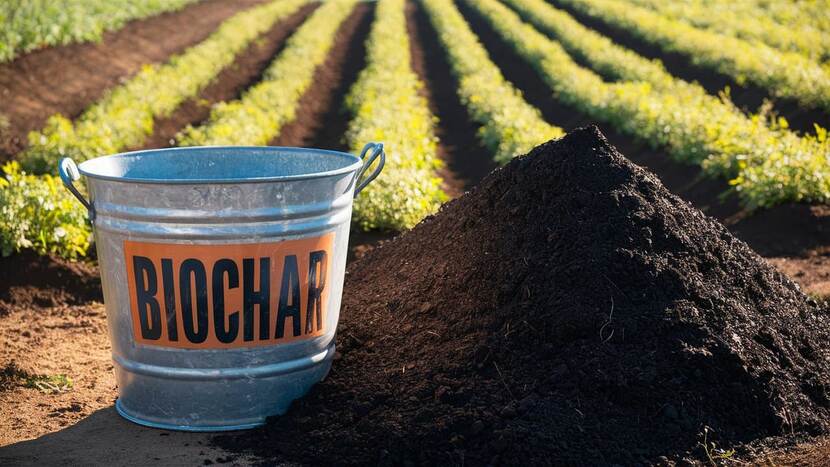
Together with the Dutch TRAIDE Foundation (with a mission to promote and facilitate the transition from aid to trade in developing countries and emerging economies), and local avocado and coffee processors working on avocado and coffee processing, Spaak is exploring how waste can be upgraded into cosmetic ingredients, animal feed inputs, and soil-enhancing biochar in Ethiopia.
Dutch innovators such as Caffe Inc., a partner of Spaak with experience in upcycling coffee waste, provide technology on how circular approaches can be scaled across value chains. Caffe Inc. employs a circular biorefinery approach to upcycle spent coffee grounds into high-value ingredients across various industries. Their technology involves collecting spent coffee grounds from local partners, stabilizing and preparing them for extraction, and then producing sustainable products such as coffee oil for personal care, coffee blocks for biobased materials, and natural colorants for textiles.
These circular approaches open new revenue streams while improving soil health and climate outcomes.The new revenue streams come from cosmetic ingredients extracted from avocado pits and coffee waste. These can be exported to Europe. In addition, products derived from biochar or other upcycled byproducts can add value beyond traditional waste disposal.
Cosmetic ingredients extracted from avocado pits and coffee waste can be exported to Europe, where demand for natural and sustainable cosmetics already exists. For example: avocado pit extracts are utilized in skincare products such as creams and lotions. Coffee waste derivatives are incorporated into face creams for their anti-aging properties.
The biochar byproduct can then be distributed to farmers. In this way, processing companies store carbon in their supply chains and cut emissions. Farmers benefit directly from healthier soils, higher productivity, and greater resilience. This ensures a stronger and more reliable supply base for processors. Ultimately, this approach links waste reduction with food security, climate action, and improved rural livelihoods.
‘A circular approach opens new revenue streams while improving soil health and climate outcomes’
Pilot in Sidama
A pilot is being explored in the Sidama region, where coffee and avocado production overlap, with TRAIDE Foundation and local partners. This provides an opportunity to build an integrated model that both reduces waste and improves productivity for local farmers. The project is currently in its initial phase operating on a trial basis in Ethiopia.
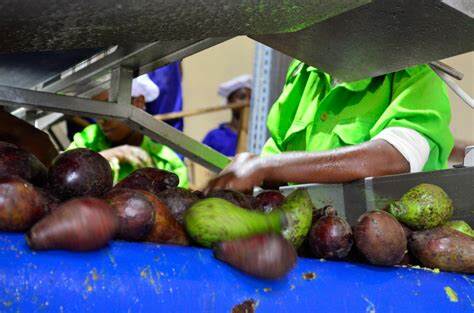
‘A pilot is being explored in the Sidama region, where coffee and avocado production overlap’
The model has strong potential to scale across Ethiopia’s avocado and coffee growing areas and to expand into other crops and value chains. With proven technologies from companies like Spaakand Caffe Inc, Ethiopia can gain from adopting circular agriculture at scale. Specifically:
-
Upcycling / Biorefinery technology – like Caffe Inc’s approach, which processes spent coffee grounds into cosmetic ingredients, coffee oil, natural colorants, and biochar.
-
Extraction and processing of avocado pits – to produce cosmetic ingredients, oils, or other value-added products.
-
Biochar production – converting residual biomass from avocado and coffee into a soil enhancer that stores carbon.
-
Circular business model solutions – linking local farmers, processors, and exporters in a way that creates revenue from waste, improves soil health, and reduces emissions.
Role of the LAN team
The LAN team in Addis Ababa plays a central role in connecting Dutch and Ethiopian stakeholders and supporting early alignment. The team continues to work on feasibility testing, pilot design, and funding options. It has been involved in linking TRAIDE and Spaak, financially supporting the testing of Ethiopian avocados, advising and supporting pilot funding options as well as contributing to the pilot design, among other activities.
In addition, the LAN team helps connect Spaak with relevant government authorities, facilitates engagement with key stakeholders, provides guidance on regulatory or operational challenges, and offers ongoing support for the implementation and scalability of the project. This supports long-term objectives by promoting sustainable farming, contributing to food security, and advancing nature-positive agriculture through circular solutions.
Furthermore, the LAN team is involved in initiatives such as integrated pest management and the ALEC 2025 livestock fair (see text box below), which will showcase Dutch expertise in livestock sectors such as dairy, poultry, aquaculture, and bioenergy. The event aims to foster business matchmaking and highlight innovations in sustainable livestock farming. The team has also been collaborating with the larger Dutch Embassy team on the circular economy masterclass and the TRANSFORM project to promote sustainable agribusiness and improve soil health.
10th Africa Livestock Exhibition & Congress (ALEC) in Addis Ababa, Ethiopia
The 10th session of the Africa Livestock Exhibition & Congress (ALEC) will take place in Addis Ababa from 30 October until 1 November 2025, as the premier East African livestock event, focusing on dairy, poultry, aquaculture and bioenergy.
Ethiopia stands out as one of Africa’s most promising countries for the livestock sector, especially in poultry and dairy. These sectors are top priorities for both the Ethiopian government and the Dutch Embassy in Addis Ababa. You can find more information about ALEC here.
More information
Would you like to know more about the opportunities in Ethiopia's bioeconomy? You can visit the country page of Ethiopia at the website Agroberichtenbuitenland.nl of the Dutch Ministry of Agriculture, Fisheries, Food Security and Nature. You can also send an email to the LAN team at the Dutch Embassy in Addis Ababa: add-lvvn@minbuza.nl.
